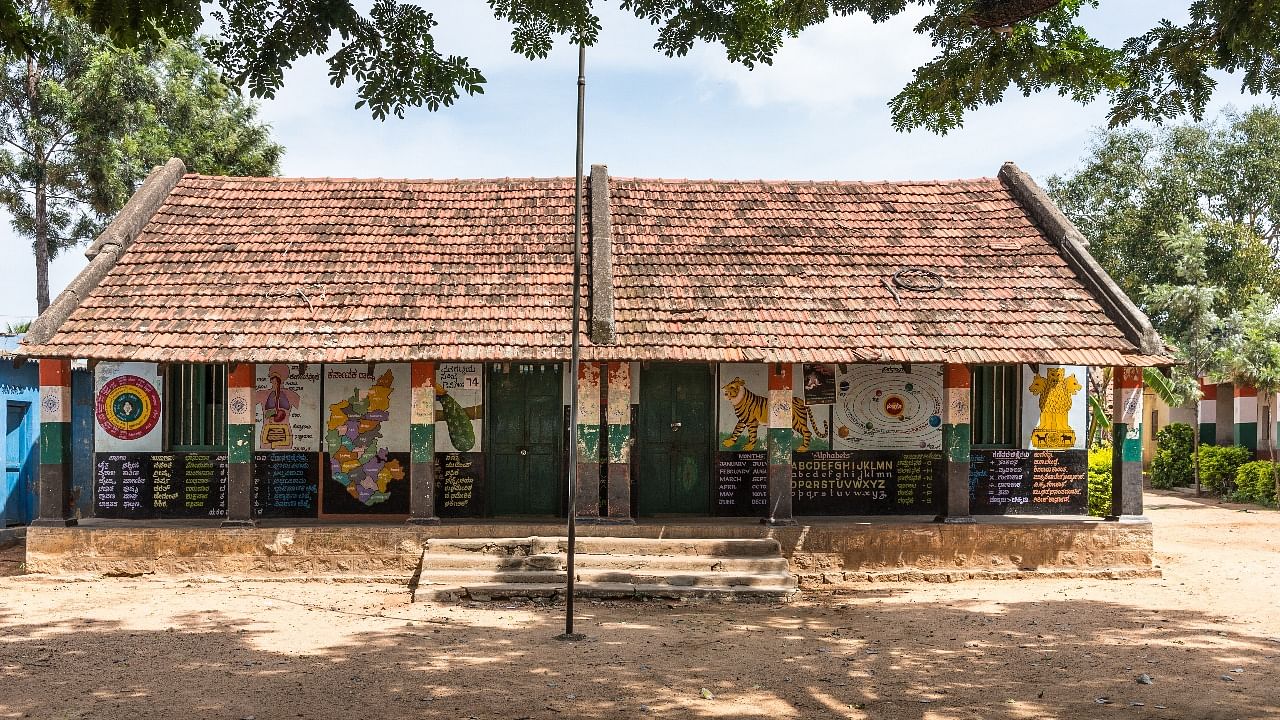
Four years ago, science graduate Basavaraj returned to Bhaktarahalli near Bengaluru, to become a teacher in the village school where he studied.
It was a dream come true for him, as people of his parents’ generation had to walk kilometres to reach high school.
It would not have been an easy road for Basavaraj and 600 other graduates from the villages around Bhaktarahalli, if the BMV primary and high school, run by a Trust named after Bharat Ratna Sir M Visvesvaraya had wound up its activities in 2008 for want of funds.
“Those were tough times. We did not have enough money to even pay salaries. We were on the verge of closure,” recalls BMV Education Trust founder secretary Kalappa Lakshmaiah.
The school became a reality after Lakshmaiah and friends from the village got together to build a school in the late 1980s.
Young boys and girls had to walk around 10 km to reach the nearby high school and many dropped out after primary school. The school came into existence with limited resources, but the Trust could not run the high school for long.
The government was supporting them with funds for primary education, but the Trust found it difficult to run the high school.
As the school was on the verge of closure in 2008, the Trust collaborated with Smile Foundation’s ‘Change the Game India’ programme, where Lakshamaiah and others got training on how to raise funds, organise programmes and the like.
Lakshmaiah said, “we managed to raise funds. We now have 18 staff, including 15 teachers.”
The impact of the school in the village is huge, Lakshmaiah told DH.
He proudly recalls that most of those who have got degrees in the village over the years are young women. He says the school has managed to curb the practice of child marriage to a large extent as girl students are specifically made aware of the problem of child marriages.
“We have 300 students from the 4-5 villages around Bhaktarahalli now,” he said.
Smile Foundation co-founder and executive trustee Santanu Mishra said their idea is to work with community-based organisations (CBOs) and social entrepreneurs through the ‘Change the Game India’ programme.
“I believe this is the best way to bring sustainable change at the grassroots because these organisations have the last mile connectivity to implement welfare programmes and government schemes effectively,” he said. “In the last two decades, we have worked with a large number of CBOs, not just training them, but also hand-holding them at every step. Through ‘Change the Game India,’ we are taking forward this vision of enabling and empowering many more community initiatives,” he added.
